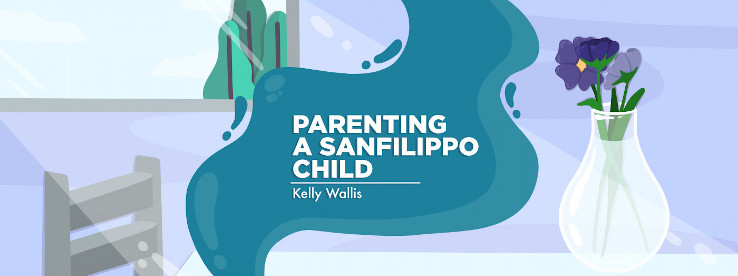What If My Child Did Not Have Sanfilippo Syndrome?
Written by |

My daughter Abby, 25, has Sanfilippo syndrome. It is a genetic, terminal disorder likened to Alzheimer’s disease. She was not diagnosed until 2017, at the age of 22. However, she was diagnosed with autism at 4, so for many years, I attributed her behaviors and delays to autism.
Now that she has a more accurate diagnosis, it explains so much about her childhood. It makes me think back to Abby as a toddler, adolescent, and teenager. I imagine what life would have been like had I always known she had Sanfilippo syndrome. But I also envision what Abby would have been like as a child with no disease at all.
What if Abby were born a neurotypical child? Her development would have been normal, so doctor’s appointments would have been quicker and smoother. Waiting to see the doctor would have been much easier, too.
Simply taking Abby out in public probably would have been less stressful, too. I distinctly remember having a lot of anxiety when I took Abby places like restaurants, parks, and stores. She was very hyper and oppositional, and she was very difficult to wrangle.
Abby was about 2 1/2 when her younger sister, Emily, was born. A disease-free Abby likely would have helped care for Emily. She probably would have wanted to hold Emily, help feed her, and teach her how to play with toys. Abby and Emily would have had a normal, close, sisterly relationship.
Instead of attending speech therapy twice a week as a toddler and an adolescent, maybe Abby would have pursued interests like learning an instrument, dancing, or playing sports. She might have had lots of friends and spent time with them by having sleepovers, or going places with each other’s family. She might have been recognized at school for exemplary performance in various academic or extracurricular events.
As she entered middle school and high school, we would have had talks about growing up, boys, and making good choices. She would have gone out on dates and attended parties and dances, including homecoming and prom. She might have gotten into trouble for talking in class with friends. Her dad and I would have helped her with homework, and in turn, she would have helped Emily with her homework.
She would probably have gone to college after finishing high school, and we would have exchanged letters during those years. She would have FaceTimed with us about college and how much fun she was having, or told us how she was struggling with a class or her roommate. She would have made lifelong friends and possibly had a boyfriend or two.
Her first job would have followed. What occupation would she have chosen? Would she stay in Houston, where we live, or would she move away? Would she be engaged or married?
She might have been a bridesmaid in her best friend’s wedding. And her best friend would always be a welcome guest in our home.
Then, she would have her own children, and her dad and I would watch as she lovingly raised them and became a wonderful mother. We would pass on heirlooms and advice that she could use with her kids. And she would have beautiful children, because she is so pretty herself.
This alternate universe is interesting to contemplate, but it is not my reality. Why does Abby have this dreaded disease? Why was she robbed of so many experiences and opportunities? I cannot answer these questions. I can simply say that we love her as she is, and always have.
I imagine this “other” Abby is who we may get to meet in heaven one day when she is whole, healed, and perfect. Until then, we will continue to love her, support her every need, and cherish the precious moments we have left with her.
***
Note: Sanfilippo News is strictly a news and information website about the syndrome. It does not provide medical advice, diagnosis, or treatment. This content is not intended to be a substitute for professional medical advice, diagnosis, or treatment. Always seek the advice of your physician or other qualified health provider with any questions you may have regarding a medical condition. Never disregard professional medical advice or delay in seeking it because of something you have read on this website. The opinions expressed in this column are not those of Sanfilippo News or its parent company, Bionews, and are intended to spark discussion about issues pertaining to Sanfilippo syndrome.






Leave a comment
Fill in the required fields to post. Your email address will not be published.